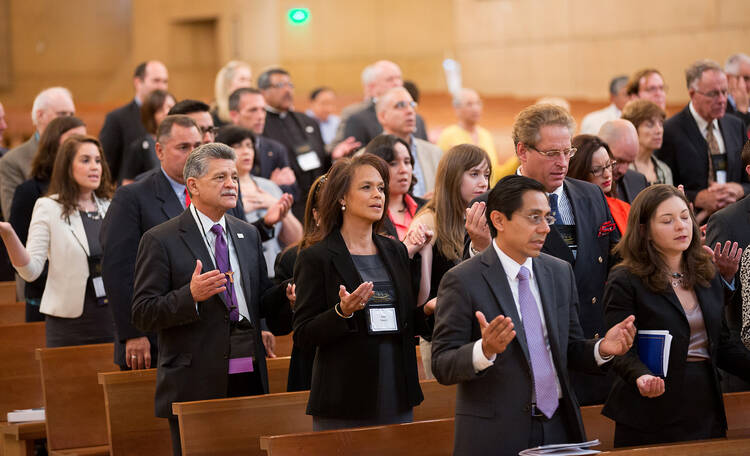Latinos Rising
Recent data released by the U.S. Census Bureau confirms a change many demographers have been predicting for years: Latinos now outnumber non-Hispanic whites in California. According to census data, there are 14.99 million Latinos living in California, compared with 14.92 million non-Hispanic whites. This shift makes California the largest U.S. state with a majority that identifies as “non-white” and the fifth state overall. Hawaii, the District of Columbia, New Mexico and Texas have also experienced this shift. This demographic move is particularly striking in California because the Latino population is relatively young: the median age is 29, compared with a median age of 45 for non-Hispanic white citizens in the state.
However, according to data released last year by the Pew Research Center, the number of Hispanics and/or Latinos identifying as white is also growing, a factor that might affect future census numbers. According to Pew, in 2000, 35 million Americans identified as Hispanic, Latino or Spanish on census surveys. By 2010, an estimated one million of these Americans had changed their self-identification to “white.”
Regardless of future shifts in these census numbers, this change is particularly meaningful for the Catholic Church in the United States. Despite a decline in the number of U.S. citizens who identify as Catholics, more than 50 percent of Latinos in the United States self-identify as Catholics. As more self-identified Latinos begin to populate the United States, the church will be afforded an opportunity to see many more Catholics in the pews.
Our Sustainable Future
The international development goals drafted by the United Nations at the dawn of the 21st century were considered ambitious at the time, perhaps even naïve. Among the eight Millennium Development Goals were these three: eradicate extreme poverty and hunger, halt and reverse the spread of H.I.V. and AIDS, and ensure universal primary education—all by the year 2015. Now, as the expiration date of the campaign approaches, the United Nations has released a final report on the global community’s fight against poverty, inequality and disease.
The achievements of the past 15 years, though not entirely attributable to the M.D.G., are significant. The number of people living on less than $1.25 per day has been reduced by more than a billion, and the number of people without access to safe drinking water has been cut in half. Some projects fell short of their goals but have shown notable progress: child and maternal mortality were cut roughly in half, and millions more girls are now in school. Critics say the U.N.’s numbers-driven approach at times incentivized short-term development gains, but the simplicity of the M.D.G. undoubtedly focused resources and attention in an unprecedented demonstration of global solidarity.
In September world leaders will seek to build on this momentum by launching a sustainable development agenda for 2030. As the name suggests, this new set of goals will place greater emphasis on the social and environmental aspects of development and will push all nations—not just those in the developing world—to pursue inclusive and responsible economic growth.
Community 2.0
The community at Reddit, a collection of online forums that is one of the most heavily trafficked Internet sites, has been roiled by controversy and a user revolt against the site’s management. After a respected employee was fired, the community moderators of one of the site’s most popular forums took it offline in protest, explaining they “all had the rug ripped out from under us and feel betrayed.” Many other Reddit communities joined the protest. Reddit’s management began doing damage control with a series of apologies; but these proved insufficient, and its chief executive officer, Ellen Pao, resigned on July 10. In The Washington Post on July 16, Ms. Pao described the events leading to her ouster as “one of the largest trolling attacks in history.”
Outside Reddit itself, some celebrated the protest as a triumph of online democracy and community over the corporate overlords, while others viewed it as confirmation that the Reddit community culture is adolescent at best or abusive and misogynistic at worst.
Forging a community of discourse is hard, and for an online community, these difficulties are magnified by the distance and pseudonymity the Internet provides. Yet this observation must not be taken as an excuse to reject or denounce online community, still less as an opportunity to absolve ourselves of the hard work of pursuing better community. As Pope Francis recognized in his 2014 World Communications Day message, “While these drawbacks are real, they do not justify rejecting social media; rather, they remind us that communication is ultimately a human rather than technological achievement.” Ms. Pao, reflecting on the messages of support she had received in the midst of the attacks, said that she was “rooting for the humans over the trolls” because “the power of humanity to overcome hate” gave her hope. Put another way: the fix for crises like that of the online community at Reddit is not for them to be less online but for them to be more of a community.








